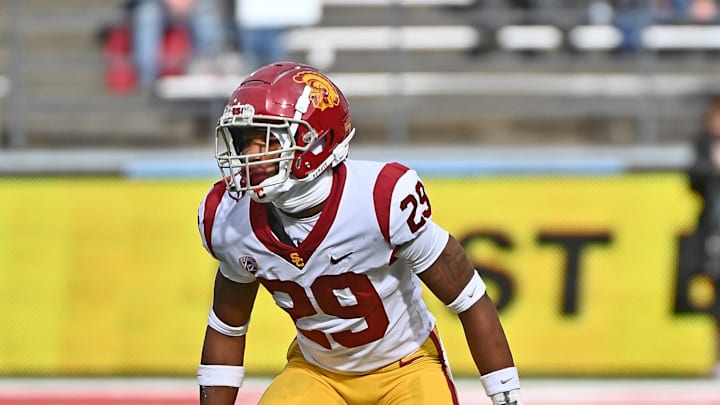Typically the USC football coaching staff is the group that forces the players to do conditioning if they deserve extra discipline. That's pretty commonplace among the entire college football landscape. Interestingly, the tables completely flipped at spring practice recently and it went the opposite way:
USC coaches lost a bet and the players made them do up-downs ? @ThePeristyle
— 247Sports (@247Sports) April 4, 2022
(via @thecheckdown, @USC_FB) pic.twitter.com/23ghsvYKsv
Nobody on the outside seems to know just what that bet was, but it's safe to assume that it's one that had very high stakes involved. The best part about this video is how the players are reacting. Check out Caleb Williams and Gino Quinones' reactions. The two of them were clearly waiting for this day to come.
SEE MORE: Ranking The Best USC Football Coaches of All-Time
But in all seriousness, this shows that SC has changed the culture. Could anyone imagine Clay Helton and Todd Orlando actually choosing to be held accountable like this? Absolutely not. So while it may seem like just a funny video that SC posted on Instagram, it's a bit deeper than that.
USC football's culture was the No. 1 thing they needed to fix, and they are fixing it.
Accountability has always been something that has been stressed as a major part of the USC football program and mentality. However, it wasn't really practiced at all for the last 12 years. SC would constantly make the same mistakes and fix nothing. They'd never admit to their mistakes and that something would need to be changed.
Fast forward to the Lincoln Riley era and the coaches are literally accepting punishment from players at practice. Culture changes encompass the entire program, not just the players. The fact that the generals are even taking punishment from the soldiers speaks volumes about where the program is these days. This is quietly more than just a hilarious video for us to watch and send to our friends. It's an indication of the progress this program has made in a short time.
